Why Citations Are Like Building a House
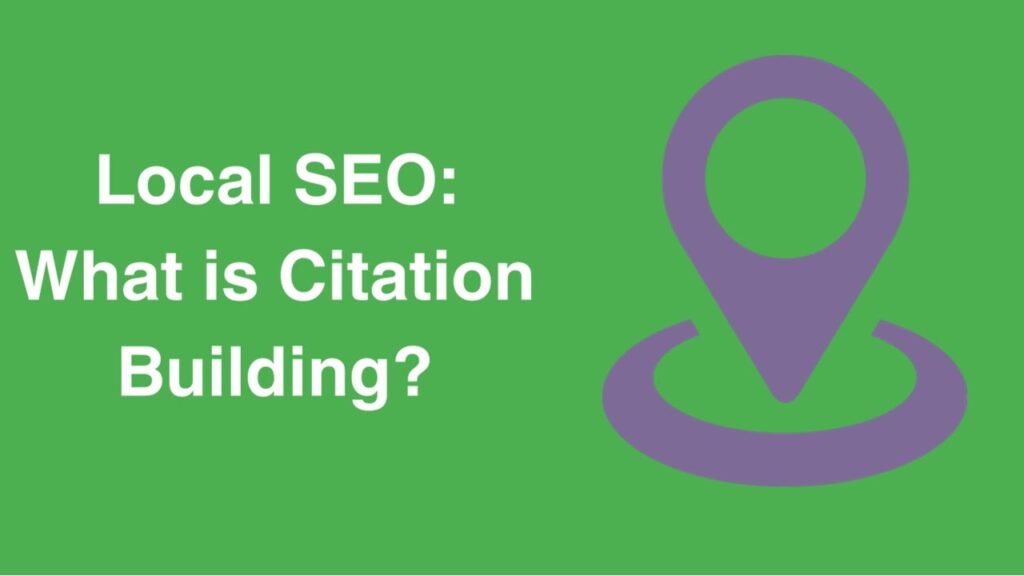
You know what happens when you build a house without a foundation? It falls over. Same thing with local SEO.
Most businesses want to jump straight to the fun stuff – fancy websites, social media campaigns, Google ads. But if Google doesn’t trust that you’re a real business operating where you say you are, none of that other stuff matters.
Map citations are your foundation. They tell Google “yes, this is a legitimate business at this actual address.” Without them, you’re building on quicksand.
I see this all the time. Business owner spends $10k on a beautiful website, then wonders why nobody can find it. Meanwhile, their competitor with a basic WordPress site from 2018 is dominating search results because they actually did their citation homework.
What the Hell Are Citations Anyway
Think of citations like online references. Every time your business name, address, and phone number show up somewhere on the internet, that’s a citation.
Could be Yelp, Yellow Pages, your city’s business directory, or some random blog post about best pizza in town. If it mentions your business info, it counts.
The basic stuff Google wants to see:
- Your exact business name
- Your complete address
- Your phone number
- Your website
- What category of business you are
Sounds simple, right? Here’s where it gets tricky – this info needs to be EXACTLY the same everywhere. I’m talking letter-for-letter, comma-for-comma identical.
The Two Flavors of Citations
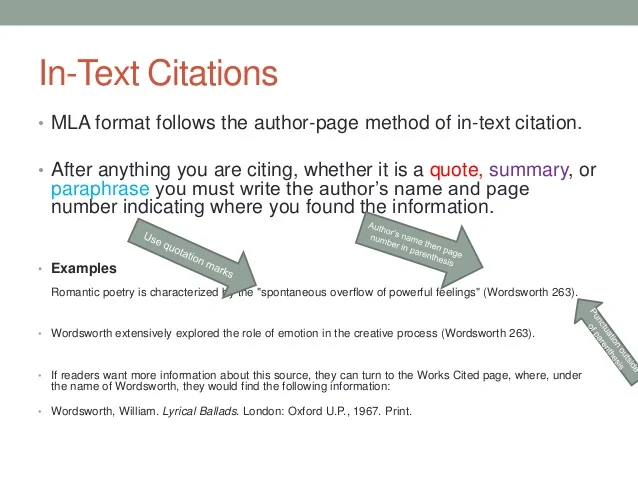
Structured Citations (The Obvious Ones)
These are your standard directory listings. Yelp, Google My Business, Facebook business pages. Clean, organized, same format every time.
The big players you can’t ignore:
- Google My Business (duh)
- Apple Maps
- Bing Places
- Yelp
- Whatever directory dominates your industry
Unstructured Citations (The Sneaky Good Ones)
This is when other websites just mention your business naturally. Local news does a story about your grand opening. Food blogger includes you in “best tacos in Dallas” roundup. Chamber of commerce lists you as a member.
These are actually more powerful because they’re editorial mentions, not just you submitting your info to directories. But they’re also harder to control.
Got a landscaping client who got mentioned in the local paper for donating work to a community garden. That one mention was worth more than fifty directory submissions because it was a real endorsement from a trusted local source.
How This Stuff Improves Local SEO
Google uses citations to figure out if you’re legit. Here’s their thinking:
“Okay, this business says they’re at 123 Main Street. Let me check… yep, Yelp has them at 123 Main Street. Facebook too. And the chamber of commerce. And this local news article. Looks legit.”
But if Google finds your address listed as “123 Main St” on Yelp, “123 Main Street Suite A” on Facebook, and “123 Main St. Ste A” somewhere else, they get confused. Confused Google means lower rankings.
What Google’s really checking:
- Is this a real business?
- Do they actually operate where they claim?
- What do they do? (category consistency)
- How established are they? (more citations = more established)
It’s like a trust test. Pass it, and Google shows you to local searchers. Fail it, and you’re invisible.
Step One: Figure Out What’s Already Out There
Before you start building new citations, you need to see what mess already exists. Trust me, it’s probably worse than you think.
The Manual Detective Work
Start by Googling your business name in quotes plus your city. See what comes up.
Then check these big players manually:
- Google My Business
- Yelp
- Apple Maps
- Yellow Pages
- Better Business Bureau
Write down exactly how your business info appears on each one. I guarantee you’ll find inconsistencies.
Tools That Do the Heavy Lifting
Free options:
- Whitespark Citation Finder
- Moz Local Check (basic version)
- Just Googling variations of your business name
Paid tools worth the money:
- BrightLocal (best overall)
- Whitespark Citation Builder
- Yext (expensive but thorough)
Make a spreadsheet. Yeah, it’s boring. But you need to know what you’re working with before you can fix it.
The Foundation-First Approach
Don’t get all fancy until you nail the basics. Focus on the platforms that actually matter:
Tier 1 (Fix these first):
- Google My Business
- Apple Maps
- Bing Places
- Yelp
Tier 2 (Industry-specific):
- Angie’s List (contractors)
- TripAdvisor (restaurants, hotels)
- Healthgrades (doctors)
- Avvo (lawyers)
- Houzz (home services)
Tier 3 (Nice to have later):
- General directories
- Local chamber sites
- Industry associations
- Community websites
Work through them in order. Don’t jump to tier 3 until tier 1 is perfect.
The Consistency Obsession
Pick your exact format and stick to it everywhere. I mean EVERYWHERE.
Business Name: Use your legal name or your DBA, but pick one Address: However the post office recognizes it (check USPS.com) Phone: One format – (555) 123-4567 or 555-123-4567, not both Website: http://www.yoursite.com or https://yoursite.com, but consistent
Had a client whose info was different on literally every platform. Sometimes they used “LLC,” sometimes they didn’t. Sometimes “Street,” sometimes “St.” Sometimes they included their suite number, sometimes they didn’t.
Took us two months just to clean up the mess. But once we did, their local rankings shot up across the board.
Building Citations the Right Way
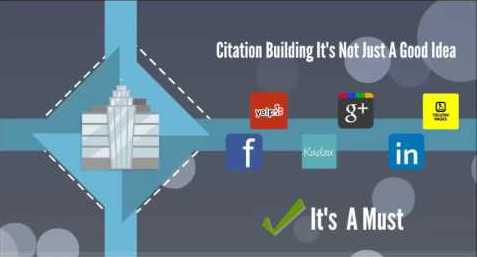
Quality Beats Quantity Every Time
Those services that promise to submit your business to 500 directories for $50? Run. Most of those directories are garbage, and some might actually hurt your rankings.
Instead, focus on:
- High-authority sites people actually use
- Industry-relevant directories
- Local directories for your specific area
- Government websites (.gov sites are gold)
Do the Important Ones Manually
Always submit manually to:
- Major platforms (Google, Yelp, etc.)
- Your industry’s main directories
- Your city’s official business listings
- Chamber of commerce sites
Consider automation for:
- General directories with good reputations
- National chains you know are legitimate
But even with automation, always check that the listing looks right afterward.
Local Directory Gold Mines
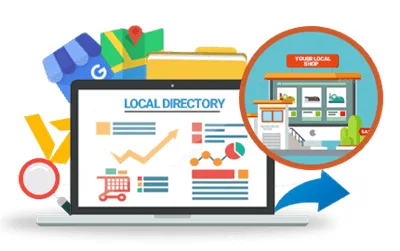
Government Sites Nobody Thinks About
Most cities have business directory sections on their websites. These citations are incredibly valuable because:
- .gov domain authority
- Locally relevant
- Usually free
- Google trusts government sites
Check your city website, economic development pages, business licensing sections.
Industry Groups and Associations
If you’re a member, make sure they list you correctly. These show Google you’re legitimate in your field.
Getting Mentioned Naturally
The best citations happen when you don’t try to create them:
- Sponsor a local event
- Get involved in community stuff
- Partner with other local businesses
- Do something newsworthy
Got a client who sponsors youth soccer teams. Those league websites have been linking to his business for three years. More valuable than any directory submission.
What NOT to Do (Seriously, Don’t)
Inconsistent Information
Every variation confuses Google. Pick your format and stick to it religiously.
Creating Multiple Listings
Don’t create a new Google My Business listing because you can’t access your old one. Find the old one and claim it.
Wrong Categories
Don’t try to game the system by picking popular categories that don’t match what you do. Be accurate.
Fake Addresses
UPS stores, virtual offices, your house when you work from a commercial location – Google knows, and they don’t like it.
Buying Bulk Directory Submissions
Those $99 packages that submit to 300+ directories? Most are worthless or harmful.
Keeping Track of What Works
What Actually Matters
Consistency score – What percentage of your citations match perfectly? Local rankings – Are you showing up higher in map results? Phone calls – Are more people calling from search? Foot traffic – Are more people finding your location?
Simple Monitoring
Free ways to stay on top:
- Google Alerts for your business name
- Monthly checks of your top 10 citation sources
- Google My Business insights
Paid monitoring:
- BrightLocal tracks everything automatically
- Whitespark shows new citation opportunities
When to Clean vs Build
Focus on cleaning when:
- Your info is inconsistent across major platforms
- You have duplicate listings
- You’re not ranking well locally
Focus on building when:
- Your existing citations are clean and consistent
- You want to expand to new areas
- Your competitors have way more citations
[Link to: “Local SEO Services”]
Advanced Citation Tactics
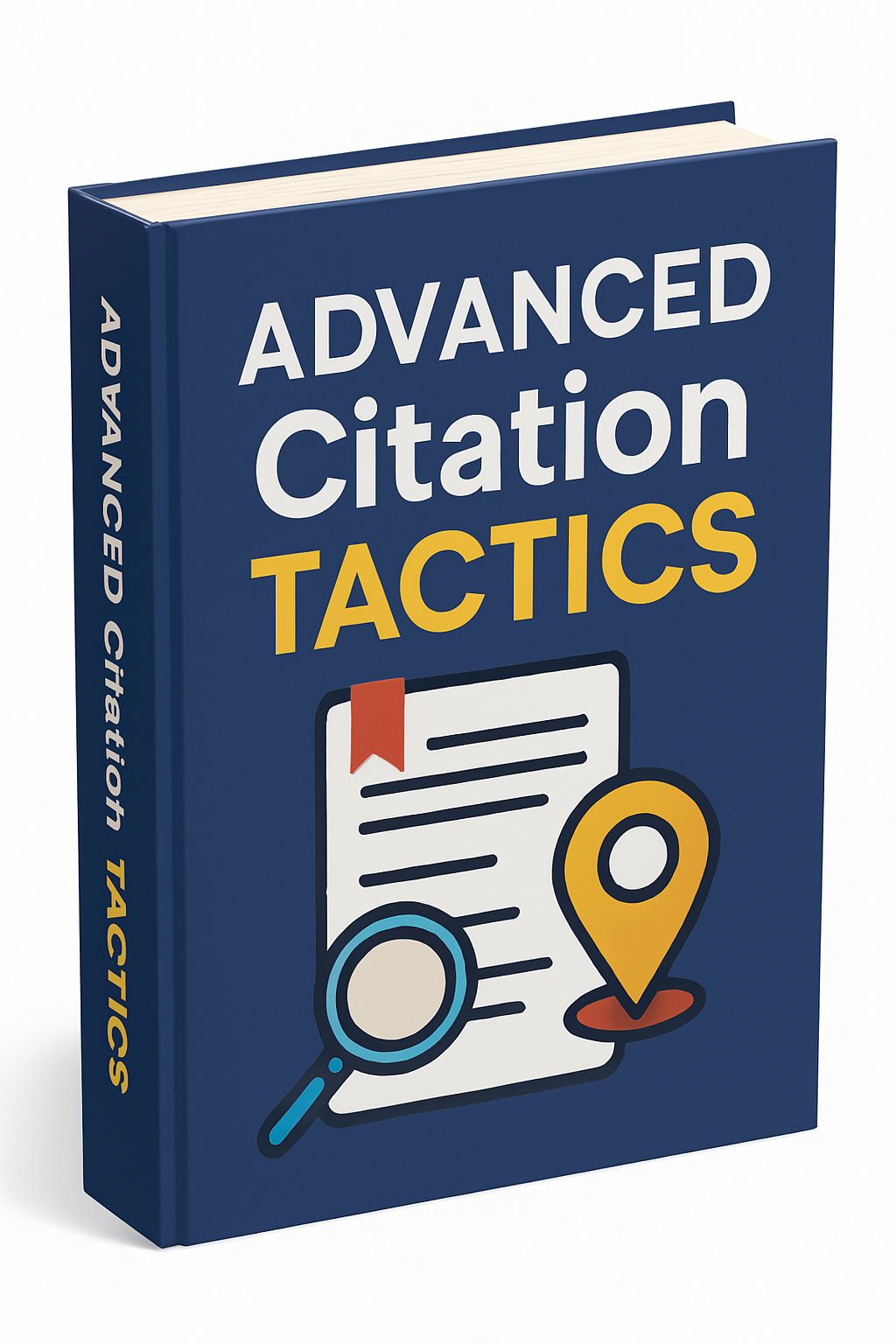
Beyond Basic NAP
Don’t just submit name, address, phone. Include:
- Detailed business descriptions with keywords
- Photos of your work or location
- Accurate business hours (including holidays)
- Services offered
- Payment methods
- Special features (handicap accessible, parking available)
Review Integration
Many citation platforms also take reviews. Encourage customers to review you on multiple platforms, not just Google.
Local Content Opportunities
When directories allow descriptions, use them strategically:
- Include your main service keywords naturally
- Mention areas you serve
- Explain what makes you different
- Keep your brand voice consistent
Managing Multiple Locations

Single location? Keep it simple – check your major citations monthly, fix issues immediately.
Multiple locations? This gets complicated fast:
- Each location needs its own citations
- Consistent naming across all locations
- Local phone numbers (not just forwarded)
- Location-specific content and offers
Worked with a chain of auto shops that had different names at each location. “Mike’s Auto,” “Mike’s Car Repair,” “Mike’s Automotive.” Nightmare to manage.
We standardized to “Mike’s Auto Repair – [Location]” and saw rankings improve at all locations within eight weeks.
The 90-Day Citation Plan
Month 1: Clean House
- Audit what’s out there
- Fix wrong info on major platforms
- Claim unclaimed listings
- Pick your consistent format
Month 2: Build Foundation
- Submit to tier 1 directories
- Research industry-specific opportunities
- Get listed on city/government sites
- Join relevant associations
Month 3: Expand and Monitor
- Add tier 2 and 3 directories
- Track ranking improvements
- Set up monitoring systems
- Plan ongoing maintenance
Common Questions and Realistic Answers
“How many citations do I need?” Quality matters more than quantity. 15-20 good ones beat 200 crappy ones.
“How long until I see results?” 1-2 months for small improvements, 3-6 months for significant changes. It’s not instant.
“Should I hire someone?” If you have one location and some time, do it yourself. Multiple locations or no time? Hire a pro.
“What if I can’t fix old incorrect citations?” Build more correct ones to outweigh the wrong ones. Google goes with the majority.
Stop Overcomplicating This
Look, citations aren’t rocket science. They’re just foundational work that needs to be done right.
Most businesses either ignore them completely or do such a sloppy job that they waste their time and money. But the ones who do citations correctly – accurately, consistently, strategically – those are the businesses showing up when people search locally.
Your citation strategy should be:
- Accurate over everything else
- Consistent across all platforms
- Maintained regularly
- Part of your bigger local SEO plan
Just Start Already
Stop overthinking this. Find five places online where your business should be listed but isn’t, or where the info is wrong.
Fix those five this week.
Next week, find five more.
In a month, you’ll have something most of your competitors don’t – a solid foundation that Google can trust. In six months, you’ll be outranking businesses that have been around longer but never bothered with the boring basics.
Ready to stop being invisible and start showing up when customers search locally? Citations aren’t sexy, but they work. Get them right, and everything else in your local marketing gets easier.
Start with one citation today. Your future customers are already searching for you.
Questions People Ask:
How many citations do I actually need to rank locally? Focus on quality over quantity – 15-20 accurate citations from authoritative sources beat 100 from random directories. Start with major platforms like Google, Yelp, and industry-specific directories before expanding.
Can I build citations myself or should I hire someone? Single-location businesses can handle basic citation building with some time investment. Multi-location businesses or those needing fast results should consider professional help to avoid costly mistakes.
How long before citations improve my local rankings? Small improvements typically show in 4-8 weeks, significant changes take 3-6 months. Citations are foundation work – they enable other local SEO tactics to work better rather than providing instant results.
What happens if I have wrong citations I can’t control? Build more correct citations to outweigh incorrect ones. Google typically goes with the majority. For persistent issues, contact sites directly or use Google My Business feedback tools to report widespread inaccuracies.
Do citations still matter with all the Google algorithm changes? Yes, citations remain a core local ranking factor because they verify business legitimacy and location. While tactics evolve, the fundamental need for consistent, accurate business information across the web hasn’t changed.
